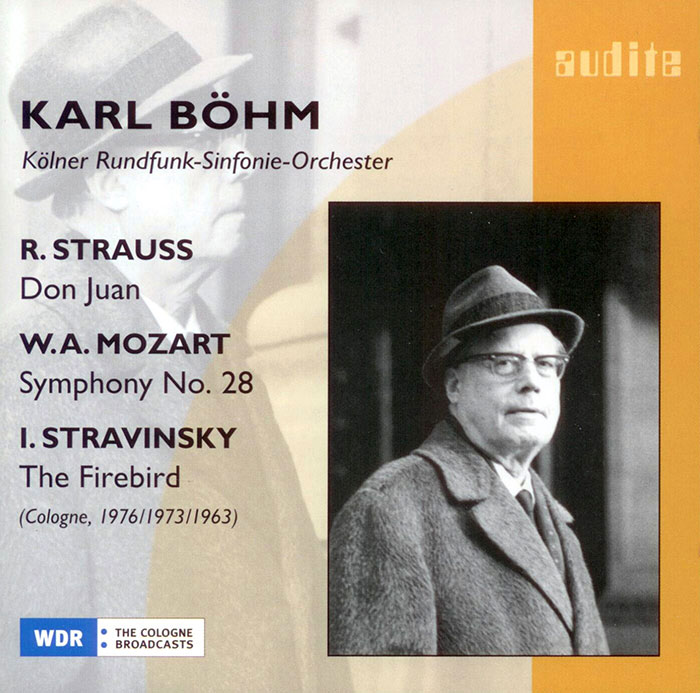Logowanie
OSTATNI taki wybór na świecie
Nancy Wilson, Peggy Lee, Bobby Darin, Julie London, Dinah Washington, Ella Fitzgerald, Lou Rawls
Diamond Voices of the Fifties - vol. 2
Tylko 1000 egzemplarzy!!!
DVORAK, BEETHOVEN, Boris Koutzen, Royal Classic Symphonica
Symfonie nr. 9 / Wellingtons Sieg Op.91
nowa seria: Nature and Music - nagranie w pełni analogowe
Petra Rosa, Eddie C.
Celebrating the art and spirit of music - vol. 3 - Pure
warm sophisticated voice...
Peggy Lee, Doris Day, Julie London, Dinah Shore, Dakota Station
Diamond Voices of the fifthies
Tylko 1000 egzemplarzy!!!
SAMPLER - STS DIGITAL, Buddy Tate, Milt Buckner, Walace Bishop
Jazz Masters - Legendary Jazz Recordings - v. 1
proszę pokazać mi drugą taką płytę na świecie!
Chesky! Niezmiennie perfekcyjny
Winylowy niezbędnik
ClearAudio
Double Matrix Professional - Sonic
najbardziej inteligentna i skuteczna pralka do płyt winylowych wszelkiego typu - całkowicie automatyczna
STRAUSS R., MOZART, STRAVINSKY, Kolner Rundfunk-Sinfonie-Orchester, Karl Bohm
Don Juan / Symphony No. 28 / The Firebird
- Karl Bohm - conductor
- Kolner Rundfunk-Sinfonie-Orchester - orchestra
- STRAUSS R.
- MOZART
- STRAVINSKY
The new Böhm-cycle within the audite-series “Legendary Recordings” begins so to speak with a Böhm-portrait. The first CD of the cycle combines works from three composers which played a decisive role in Karl Böhm’s professional life: Strauss and Mozart were two of his main interests and also the works of Stravinsky fascinated him early on. Karl Böhm (1894-1981) made recording history. Documentary evidence in sound of his creative career spans the period from the 1930s to the year of his death; many of his recorded performances are regarded as definitive. Alongside the well-known recordings, many of them reissued several times, there exist radio and studio performances from the 1960s and 1970s which flesh out, and sometimes correct, the portrait of this internationally active conductor of operas and concerts. This CD presents three hitherto unknown recordings Böhm made with the Kölner Rundfunk-Sinfonieorchester (today: WDR Sinfonieorchester Köln). Richard Strauss and Wolfgang Amadeus Mozart were what might be called Böhm’s household gods. In his time as director of the Hamburg and especially the Dresden State Opera (1934-41) he and Strauss were close friends and colleagues in a relationship in which Strauss often played the role of advisor and agent for himself. Böhm was regarded throughout his life as an authority on Strauss. The version of Don Juan presented here dates from 1976, when Böhm was 82, but he conducts it with consummate control and such fire that his advanced age seems irrelevant. The recording of Mozart’s Symphony No. 28 in C from 1973 documents Böhm’s Mozart style, then considered to be valid for all time: Moderation in tempo and dynamics, gentle, springy articulation and a style of phrasing schooled in vocal lines are still compelling despite, and perhaps because of, the radical changes the interpretation of the Mozart sound has undergone since the revival of interest in historical performance practice. The recording of Stravinsky’s Firebird suite, conducted by Böhm in 1963 for WDR, is a rarity: Until today Böhm’s released discography leaves out Stravinsky completely. But Böhm had included works of Stravinsky in his programme schedules already during his Munich years (1921-27) – a time when the music of the young Russian was excitingly new. The sophisticated score of the Firebird, even today a real challenge for orchestras and conductors alike, shows Böhm to be outstandingly capable of bringing out the full delicacy, power and luminosity of Stravinsky’s score. Future releases of the Böhm-cycle will present historic recordings with works by Vieuxtemps, Brahms, Beethoven and Bruckner.





























